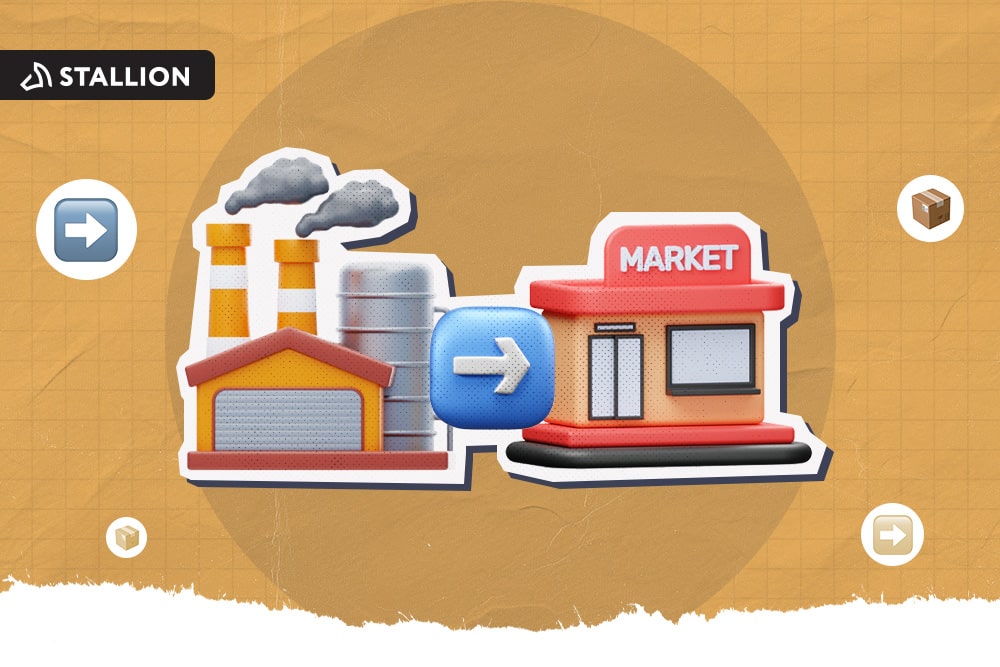
Shipping services play a critical role in our society. For companies, they help keep the wheels of commerce turning. Your customers rely on you to get the goods they need to ensure their business runs smoothly, which means they count on you to deliver them safely and promptly.
For individuals, shipping has also become a crucial part of their lives. More and more, people order the things they need online. Today, the global e-commerce market is worth $5.8 trillion, with projections indicating a 39% increase over the next three years. That means, now more than ever, people are relying on you to ensure that they get the things they need when needed.
While this trend is good news for the shipping services industry, it also means that you can’t afford to put a foot wrong – no mean feat in such a complex industry. That’s why it is so crucial for you to listen to your customers. This article will examine why customer feedback is essential and why shipping services thrive on it.

If you were a manufacturer, you'd need to identify and design a product and then build it. Finally, you would ask for feedback on how well you did. Service industries don't have that luxury. They start with customer needs and figure out how to fulfil them. The customer always comes first.
To keep your business running, you need to know what your customers want, or they will turn to other shipping options. Imagine a customer asked you to do a specific delivery – a timed drop at an address. If you can't fulfil that need, what will they do? Look for another solution. Another company that can – or they'll handle the delivery themselves if they can.
Now, imagine that they don't ask. They look to see what services you offer and what they need isn't available. What are they going to do? They still require the service, so it's back to looking for another solution. You need to find out what your customers need to avoid losing business you didn't even know was out there.
As a shipping services provider, you survive by being the best at what you do. It’s a highly competitive market, and if you don’t offer the service and reliability your customers require, they always have the option to go elsewhere. In fact, many of your customers even have the option to handle deliveries themselves – only your efficiency keeps them loyal to you.
The constant pressure of competition makes surviving in a service industry incredibly challenging. It's also why shipping services thrive on customer service – it forces you to react to customer feedback, adapt, and strive to improve your Customer Satisfaction Score (CSAT).
Ask yourself, 'What do my customers want?’ You can hone your service to fit their needs. By understanding the true CSAT meaning, you can ensure you stay ahead of the game.
Given this necessity of continuous improvement, let’s look at some of why the shipping services industry thrives on customer feedback:

Logistics is a uniquely complicated industry. From the continual challenges of running and routing transport to ensure deliveries are met on time to the complexities of national and international regulations and customer procedures to the difficulties in coordinating across different modes of transportation, companies, and languages.
A delivery may begin being booked in Arabic on a UAE domain, be loaded onto a plane, land in Germany, be driven through Europe, and get loaded onto a shipping container in France. And the worst thing is, most of your customers will have to learn about these difficulties.
However, that only makes responding to feedback more critical – because when a thousand things can go wrong, half of which are beyond your control, you better know what your customers need to know, and that requires feedback.
Finally, as things weren't tricky enough for shipping services, next – or even same-day – deliveries are becoming more common, further pushing the need to get up-to-date customer feedback – because with expectations so high, the pressure is on to deliver on your deliveries.
Let’s look at how you can collect and use customer feedback to help your shipping services business thrive, expand and grow, even in an ever more competitive market.
The first step in utilizing customer feedback is to collect it. Whether you ask them directly or use your detective skills, there are always ways to discover what your customers think. Here are some of the best ways to gather customer feedback.


Free to use image sourced from Pexels
Finally, remember that not all feedback has to come from outside your business. One of your best barometers for how you are doing is how your staff feels. Ask them what you need to do to allow them to improve. This could range from training to updates in your payroll small business systems.
Read More: Value Chain Analysis: A Beginner's Guide to Business Growth
Once you have data about what your customers want or don't want, it's time to start making changes. If customers report missed deliveries, consider investing in better real-time tracking visibility. If your drivers are delivering damaged goods, revise your handling procedures. Every complaint is an opportunity to improve; every compliment points to areas you can lean from to enhance other business areas.
Finally, remember that if your shipping services business will thrive on customer feedback, you must strive for continuous improvement. Go back and ask your customers how your improvements are working. With this mindset, you can ensure that you can offer the best service possible, continue developing your business, and stay ahead of the competition
Customer feedback is crucial for shipping services, especially as the industry has so many unique challenges. However, by seeking feedback, you can strive for continuous improvement, leading to higher customer satisfaction and competitive advantage. When it comes down to it, your customers make a choice when they come to you, which they could always have made otherwise.
However, if you learn from your mistakes and leverage the tools at your disposal to actively listen to your customers, you can build a better, lasting relationship with them, providing the shipping service they want every time.

Candy Rada is a dedicated professional with tons of experience in content writing for the shipping industry. As a literature degree holder, she excels in creating engaging content with strategies that enhance brand visibility. She enjoys playing with her cats, reading dystopian books, and joining trivia games in her free time.



Can our fellow Torontonians relate?
-
#smallbusiness #business #entrepreneur #socialmedia #shipping #ecommerce #canadianecommerce #shopify #poshmark #b2b #saas #etsy #ebay #canada #canadiansmallbusiness #shoplocalcanada #entrepreneur
#toronto

Here’s your quick hassle free shipping from 🇨🇦 to 🇺🇸 as a business owner!
-
Any questions?! Leave them 👇🏻 and save this video so you don’t forget!
-
#smallbusiness #business #entrepreneur #socialmedia #shipping #ecommerce #canadianecommerce #shopify #poshmark #b2b #saas #etsy #ebay #canada #canadiansmallbusiness #shoplocalcanada #entrepreneur

Meet @drinkbenny a 🇨🇦 female founded energy drink brand! Instead of focusing on their products, they’re taking a unique approach by hosting in person events in different Canadian cities to offer an experience for their community 🧡
-
What are your thoughts on in person events? 💭
-
#smallbusiness #business #entrepreneur #socialmedia #shipping #ecommerce #canadianecommerce #shopify #poshmark #b2b #saas #etsy #ebay #canada #canadiansmallbusiness #shoplocalcanada #entrepreneur

Do you know the difference between DDU and DDP when shipping internationally 🌏 ?
-
Questions? Leave them below! 👇🏻
-
#smallbusiness #business #entrepreneur #socialmedia #shipping #ecommerce #canadianecommerce #shopify #poshmark #b2b #saas #etsy #ebay #canada #canadiansmallbusiness #shoplocalcanada #entrepreneur

Here’s a quick hack to save time from choosing multiple postage options
↪️ Turn on the lowest postage rate automation to save you time!
-
Questions? Leave them below! 👇🏻
-
#smallbusiness #business #entrepreneur #socialmedia #shipping #ecommerce #canadianecommerce #shopify #poshmark #b2b #saas #etsy #ebay #canada #canadiansmallbusiness #shoplocalcanada #entrepreneur
